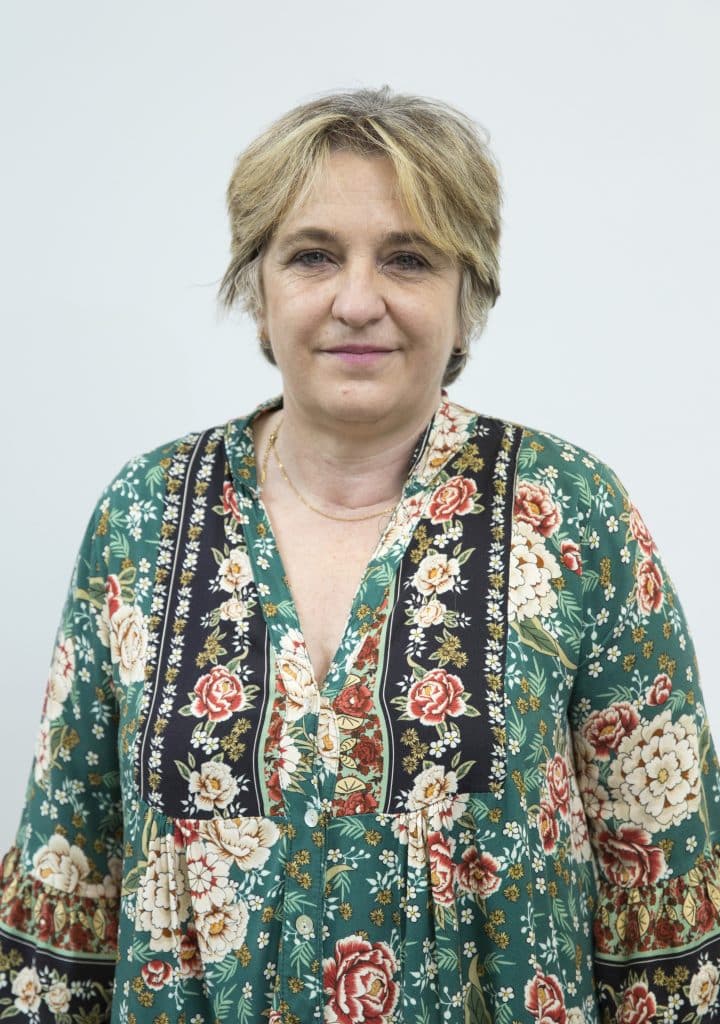“When I first entered the workforce, asset management was a man's world”

Redacción Mapfre
For MAPFRE Am’s latest interview of the month, we spoke with Paloma Ramos, financial risk and sustainability manager at MAPFRE AM, who has been with the asset manager for nearly 30 years. “Back when I started, the number of women in this sector was scant, just a handful. It truly was a man’s world in every aspect,” Ramos reflects, coinciding with International Women’s Day. Ramos is a member of MAPFRE AM’s dedicated ESG investment team and views sustainability as “one of the most significant challenges of the 21st century.”

- With over 29 years at the asset manager, you are arguably one of the most experienced people at the firm. How has the manager evolved and adapted to these changing times?
Over the years, changes have been constant. When I started, negotiations were conducted over the phone, calculations were done manually with calculators (a spreadsheet was considered science fiction!), and transactions were recorded by hand on physical forms with carbon copies. I remember a colleague closing a deal and saying to the other person, “Are you using an HP 12C calculator? I don’t understand why you aren't getting the same result!”
Not only has the technology changed, but so has the sophistication of the products and the customers. This has forced the manager to adapt continually, integrating increasingly intricate computer systems, training personnel, and adapting product offerings.
The company has transitioned from merely manufacturing investment funds to tackling new challenges, first with the discretionary management of pension and voluntary social welfare funds, then expanding to MAPFRE portfolios and the portfolios of other external companies.
Investments have also become more sophisticated, shifting from primarily government bonds and “plain vanilla” options to including structured assets and even alternative funds.
- With your wealth of experience, what changes have you seen in the asset management sector regarding gender equality?
When I started, the number of women in this sector was scant, just a handful. It truly was a man’s world in every aspect, and breaking through was always difficult. Overcoming the typical dismissive remarks like “Miss, I'm not sure if you can help me, could I talk to...” was a significant challenge. Although there is still a long way to go, fortunately, those days are behind us. Increasingly, women are earning well-deserved recognition in the financial markets.
- What does your day to day look like?
My day-to-day work is divided into two key tasks. On the one hand, I oversee and manage traditional financial risks such as credit (counterparty, among others). This involves using the department’s computer tools or proprietary developments to facilitate analysis and reporting to various stakeholders, including management control bodies.
On the other hand, I supervise the transactions conducted by the management company to ensure they prioritize customer interests. This includes monitoring prices to ensure they reflect market conditions and guaranteeing equitable treatment for all customers, without favoring any particular individual.
In the area of sustainability, I measure associated risks and compile reports on compliance with the company’s integration policy. I also collaborate with the group’s Sustainability area to assess the alignment of MAPFRE’s investments with the Taxonomy.
- MAPFRE AM has created a specific ESG task force. What is its main function?
ESG, or sustainability, covers a wide range of aspects, including measurement, evaluation, and dialogue with companies to understand their activities and support them in changing their production models. It also entails assessing the carbon footprint of our investments and verifying the social and environmental commitments made by MAPFRE AM and the MAPFRE Group. As a result, the MAPFRE AM team is made up of a sizable group of people committed to these issues and the preparation of various reports.
- With many years of experience analyzing the regulatory landscape, what are your thoughts on the new regulations concerning socially responsible investments and their impact on us?
Sustainability is one of the defining challenges of the 21st century. For the finance sector, this journey began with the endorsement and adoption of the Principles for Responsible Investment (PRI) in 2005, followed by adopting the 2030 Agenda for Sustainable Development and the Paris Agreement in 2015.
The European Union (EU) is firmly commitment to financing sustainable development, reflected in the implementation of various regulations aimed at steering capital towards sustainable investments and ensuring market transparency. These include the approval of regulations such as the “Taxonomy Regulation”, the “Sustainability-related disclosure in the financial services sector”, and “MiFID II amendments for considering sustainability preferences in the suitability test.”
For MAPFRE AM, these regulatory developments require significant adaptation efforts. Internal policies, particularly those concerning integration and engagement, must not only be made public but also continually adapted to meet evolving requirements. Product offerings must also align with both regulatory requirements and changing customer preferences. This has spurred the development of methodologies for measuring and assessing non-financial risks and generating impact reports. Finally, we have designed measures to mitigate these types of risks.
- In broader terms, how does MAPFRE AM approach the arrival of MiFID III? What impact will it have on us and the industry in general?
While this new regulation from the European Commission is still a proposal in an early stage of development, it represents the construction of a model with a markedly different orientation from that proposed by MiFID II. It has sparked considerable controversy for deviating from established norms. Companies cannot capitalize on the significant effort they dedicated to implementing the customer behavior rules established by MiFID II. Instead, the new initiative prioritizes cost over the quality of service and product. These changes would impact not only securities market regulation but also the insurance distribution directive (IDD).
- In recent years, there has been a considerable effort to protect the retail investor. Do you think there is still some room to improve in this area? In other words, can more be done?
One of the primary concerns of the different supervisory authorities is protecting retail investors, a sentiment echoed in the considerations of all laws, regulations, and even implementation guides. Progress has been made in standardizing information at the European level, enabling all end customers to compare products, understand costs clearly, and be aware of the risks they face, with scenarios included in mandatory informational documentation. Customers can now also decide and define their investment preferences, both financially and sustainably.
While there is always room for improvement, in my view, significant strides have been made, and retail investors are now much better protected than they were 10 years ago.
- Now, the possibility of selling private equity in this segment has emerged, and it appears to be an asset with some risk due to its limited liquidity. What would be the approach to mitigate surprises with these assets?
The opening of new spaces for marketing complex products always raises concerns, particularly when targeting retail customers. Given the sophistication and long-term nature of such products, ensuring liquidity becomes a delicate matter. Controls must be tightened to ascertain the suitability of the product for each customer and to accurately identify the target audience. At the same time, customer information remains essential.
- Hobbies. Travel, reading, and cultural activities.
- Favorite dish. For years, my favorite dish was cannelloni. It was what I always asked for on my birthday. Now, any fish dish.
- Favorite city/country. First, Madrid. During the time I lived abroad, I realized how important it was for me and all the attractions it has. Next, Paris and Rome.
- Favorite musical group/singer. I don’t really have one. Music from the 80s and 90s might be what I most identify with because it was the music of my youth.



